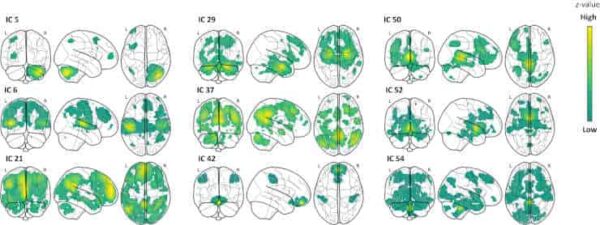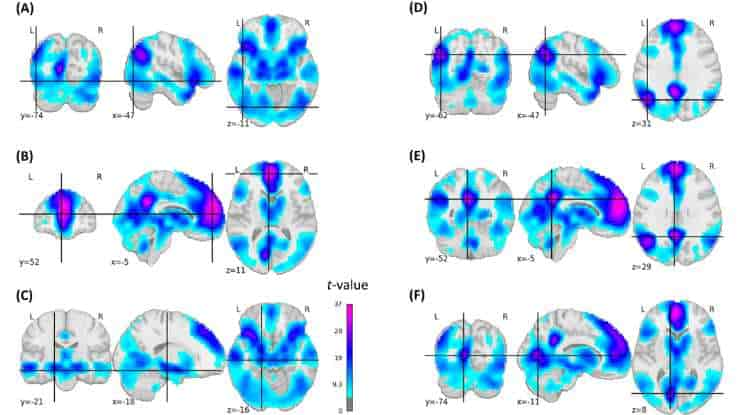Summary: Researchers have released the results of the world’s largest functional imaging study on memory. They found a direct association between brain activity during the memorization process and subsequent memory performance. The study asked nearly 1,500 participants aged between 18 and 35 to memorize 72 images while researchers recorded their brain activity using MRI. The team found that individuals with better episodic memory showed a stronger activation of certain brain areas, including the hippocampus, while no such association was found for other memory-relevant brain areas in the occipital cortex.
Memory performance varies greatly between people, and now, University of Basel researchers have established that specific brain signals are linked to these discrepancies.
Although it is well known that specific brain regions play a crucial role in memory processes, it is still unclear whether or not these regions exhibit different activities when storing information in people with better or worse memory performance.
In the largest functional MRI study of memory ever conducted, researchers led by Professors Dominique de Quervain and Andreas Papassotiropoulos asked over 1,500 participants between the ages of 18 and 35 to look at and memorize 72 images.
MRI was used to record the patients’ brain activity during this process. The participants were then asked to recollect as many of the photographs as possible — and, just like the general population, there were considerable differences in memory performance among them.
Memory Performance Brain Networks
The researchers discovered a direct relationship between brain activity during the learning process and subsequent memory function in certain brain regions, including the hippocampus. Individuals with greater memories had higher levels of activity in these brain locations.
Other memory-relevant brain regions in the occipital cortex were shown to be equally active in persons with varying degrees of memory performance.

The researchers were also able to uncover functional brain networks associated with memory performance. These networks are made up of multiple brain areas that communicate with one another to facilitate complicated operations like information storage.
“The findings help us to better understand how differences in memory performance occur between one individual and another,”
said first author Dr. Léonie Geissmann. However, the brain signals of a single individual do not allow any conclusions to be drawn about their memory performance, he added.
According to the researchers, the findings are critical for future research aimed at linking biological characteristics such as genetic markers to brain signals. The large sample size of the study and the fact that all subjects were examined in the same scanner is advantageous in terms of statistical power and suitability for the inter-individual approach used here.
The resampling analysis shows that 500 to 1000 people are needed to produce substantial effects even within this homogeneous sample. This finding is consistent with a previous paper that claims that replicable brain-wide association studies require thousands of participants.
The current study is part of a large-scale research initiative led by the University of Basel’s Department of Biomedicine’s Research Cluster Molecular and Cognitive Neurosciences (MCN) and the University Psychiatric Clinics (UPK) Basel. This project aims to develop a better knowledge of memory processes and translate fundamental research discoveries into clinical applications.
Abstract
Episodic memory, the ability to consciously recollect information and its context, varies substantially among individuals. While prior fMRI studies have identified certain brain regions linked to successful memory encoding at a group level, their role in explaining individual memory differences remains largely unexplored. Here, we analyze fMRI data of 1,498 adults participating in a picture encoding task in a single MRI scanner. We find that individual differences in responsivity of the hippocampus, orbitofrontal cortex, and posterior cingulate cortex account for individual variability in episodic memory performance. While these regions also emerge in our group-level analysis, other regions, predominantly within the lateral occipital cortex, are related to successful memory encoding but not to individual memory variation. Furthermore, our network-based approach reveals a link between the responsivity of nine functional connectivity networks and individual memory variability. Our work provides insights into the neurofunctional correlates of individual differences in visual episodic memory performance.
Reference:
- Geissmann, L., Coynel, D., Papassotiropoulos, A. et al. Neurofunctional underpinnings of individual differences in visual episodic memory performance. Nat Commun 14, 5694 (2023) DOI: 10.1038/s41467-023-41380-w
Top image credit: Nat Commun 14, 5694 (2023) DOI: 10.1038/s41467-023-41380-w CC-BY
Last Updated on January 2, 2024
